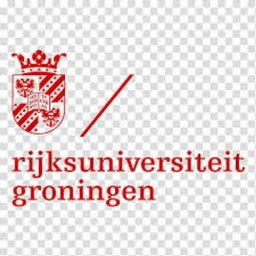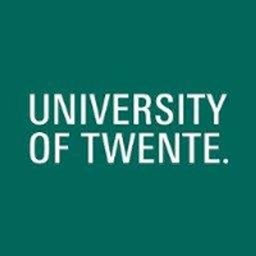Job Opportunities in Netherlands

September 23, 2024
Rijksuniversiteit Groningen
Groningen
OTHER
Postdoc Modeling societal preparedness for health crises
The postdoc will conduct research in a large multi-disciplinary project (PREP-Shield - Preparedness for society in health crises and disasters) funded by the European Union under the call Horizon-CL3-2023-DRS 01-01 (Improving social and societal preparedness for disaster response and health emergencies) to study preparedness for society in health crises and disasters.
The project's main objective is to foster a more holistic and citizen-centric approach to health crisis preparedness and management, by co-creating policy recommendations, methods, and an AI-powered platform for crisis management to better prepare for and address health crises from a social and societal perspective. To reach this objective, PREPSHIELD will develop recommendations based on stakeholder needs, devise ICT tools to simulate future crises through an iterative process, and involve various pilots for the evaluation of the ICT platform and the policy recommendations.
The postdoc will contribute to achieving the desired outcomes of the project by focusing on two main tasks:
1. a multi-method analysis of vulnerable groups (elderly, women, disabled people) needs in order to deliver recommendations for more inclusive crisis preparedness and management. Desk research, survey data, and qualitative interviews will be conducted to identify the main barriers to compliance with institutional recommendations during health crises, like the Covid-19 pandemic.
2. the development of an agent-based model (ABM) of how human psychological and social features affect, in separation and in combination, agents’ behaviors in a health crisis (e.g., risk perception; norm compliance; risky behaviors). The results from the simulation will be presented and discussed with stakeholders (public health experts, city managers, NGOs) during participatory sessions with the aim of further validating the simulation results. The ABM model, psychologically and behaviorally realistic, will be connected to the pandemic wave model in the PREPSHIELD platform to simulate the potential evolution of the pandemic and individual’s reactions to it, based on the measures implemented and input from the stakeholders provided through the app. We invite strong researchers whose expertise fit the main research line.
Organisation
The University of Groningen is a research university with a global outlook, deeply rooted in Groningen, the City of Talent. Quality has had top priority for four hundred years, and with success: the University is currently in or around the top 100 on several influential ranking lists.
The Faculty of Behavioural and Social Sciences excels in teaching and research in the fields of human behaviour, thinking, learning, and how people live together. We work on societal issues and problems that people experience in daily life. Central to this is individual and societal resilience and how to increase this. To this end, we focus on the topics of migration, the environment and climate, health, upbringing and education, the protection of vulnerable minorities, and sustainable partnerships. The Faculty of Behavioural and Social Sciences employs over 650 staff members. For more information about the Faculty please check the link: https://www.rug.nl/gmw/.
The postdoc will participate in the activities of the ICS and will be hired at the Department of Sociology. The Interuniversity Center for Social Science Theory and Methodology (ICS) is an internationally renowned Research Center and Graduate School in the field of Sociology, located in the Netherlands at the Universities of Groningen, Utrecht, Nijmegen, and Amsterdam (Uv A).
The Department of Sociology is part of the Faculty of Behavioural and Social Sciences. The department offers a bachelor's and a master's degree in Sociology. The research program is grouped around five themes and is part of two national research centers.
The project's main objective is to foster a more holistic and citizen-centric approach to health crisis preparedness and management, by co-creating policy recommendations, methods, and an AI-powered platform for crisis management to better prepare for and address health crises from a social and societal perspective. To reach this objective, PREPSHIELD will develop recommendations based on stakeholder needs, devise ICT tools to simulate future crises through an iterative process, and involve various pilots for the evaluation of the ICT platform and the policy recommendations.
The postdoc will contribute to achieving the desired outcomes of the project by focusing on two main tasks:
1. a multi-method analysis of vulnerable groups (elderly, women, disabled people) needs in order to deliver recommendations for more inclusive crisis preparedness and management. Desk research, survey data, and qualitative interviews will be conducted to identify the main barriers to compliance with institutional recommendations during health crises, like the Covid-19 pandemic.
2. the development of an agent-based model (ABM) of how human psychological and social features affect, in separation and in combination, agents’ behaviors in a health crisis (e.g., risk perception; norm compliance; risky behaviors). The results from the simulation will be presented and discussed with stakeholders (public health experts, city managers, NGOs) during participatory sessions with the aim of further validating the simulation results. The ABM model, psychologically and behaviorally realistic, will be connected to the pandemic wave model in the PREPSHIELD platform to simulate the potential evolution of the pandemic and individual’s reactions to it, based on the measures implemented and input from the stakeholders provided through the app. We invite strong researchers whose expertise fit the main research line.
Organisation
The University of Groningen is a research university with a global outlook, deeply rooted in Groningen, the City of Talent. Quality has had top priority for four hundred years, and with success: the University is currently in or around the top 100 on several influential ranking lists.
The Faculty of Behavioural and Social Sciences excels in teaching and research in the fields of human behaviour, thinking, learning, and how people live together. We work on societal issues and problems that people experience in daily life. Central to this is individual and societal resilience and how to increase this. To this end, we focus on the topics of migration, the environment and climate, health, upbringing and education, the protection of vulnerable minorities, and sustainable partnerships. The Faculty of Behavioural and Social Sciences employs over 650 staff members. For more information about the Faculty please check the link: https://www.rug.nl/gmw/.
The postdoc will participate in the activities of the ICS and will be hired at the Department of Sociology. The Interuniversity Center for Social Science Theory and Methodology (ICS) is an internationally renowned Research Center and Graduate School in the field of Sociology, located in the Netherlands at the Universities of Groningen, Utrecht, Nijmegen, and Amsterdam (Uv A).
The Department of Sociology is part of the Faculty of Behavioural and Social Sciences. The department offers a bachelor's and a master's degree in Sociology. The research program is grouped around five themes and is part of two national research centers.
Qualifications
We are looking for candidates who meet the following requirements
- A Ph D degree in sociology, social psychology, complex systems science (or a related discipline).
- Documented experience with quantitative methods (survey) and agent-based modeling and simulation.
- Previous experience with disaster risk preparedness, human behavior, and health crises as a research subject.
- A relevant publication record demonstrating your ability to publish international academic publications, preferably in top-tier peer-reviewed journals.
- A strong affinity with and a record in interdisciplinary work and interdisciplinary collaborations and is interested in working with people from different fields (the project requires collaborating with experts from engineering, computer science, disaster studies, emergency medicine, and communication studies).
- Excellent command of the English language.
- Ability to work independently and manage joint research activities.
- A team player with strong communication skills.
- Demonstrable competencies such as conceptual capacity, environment orientation, presenting, and result orientation.
Organisation
Conditions of employment
We offer you in accordance with the Collective Labour Agreement for Dutch Universities
The selection interviews (Online) will take place on October 29. Shortlisted candidates will be invited for an in-person interview in week 46.
- Depending on qualifications and work experience, a salary of € 4,020 to a maximum of € 5,278 (salary scale 10) gross per month for a full-time position
- A holiday allowance of 8% of gross annual income an 8.3% end-of-the-year allowance.
- Attractive secondary terms of employment.
- The position is classified in accordance with the University Job Classification (UFO) system; the UFO profile is Researcher 4.
- A temporary contract of 1 fte for a period of 33 months.
The selection interviews (Online) will take place on October 29. Shortlisted candidates will be invited for an in-person interview in week 46.
Application
You can apply by submitting
The selection interviews will take place online in week 44; one or two shortlisted candidates will be invited for an onsite interview in week 46.
The University of Groningen strives to be a university in which students and staff are respected and feel at home, regardless of differences in background, experiences, perspectives, and identities. We believe that working on our core values of inclusion and equality are a joint responsibility and we are constructively working on creating a socially safe environment. Diversity among students and staff members enriches academic debate and contributes to the quality of our teaching and research. We therefore invite applicants from underrepresented groups in particular to apply. For more information, see also our diversity policy webpage: https://www.rug.nl/about-ug/policy-and-strategy/diversity-and-inclusion/
Our selection procedure follows the guidelines of the Recruitment code (NVP): https://www.nvp-hrnetwerk.nl/nl/sollicitatiecode and European Commission's European Code of Conduct for recruitment of researchers: https://euraxess.ec.europa.eu/jobs/charter/code
We provide career services for partners of new faculty members moving to Groningen.
Unsolicited marketing is not appreciated.
- CV including 2 references (contact data).
- Letter of motivation (max. 2 pages).
- Copy of your diploma (including grades), or a statement indicating when you are expected to finish your degree (including grades) if you have not finished yet.
The selection interviews will take place online in week 44; one or two shortlisted candidates will be invited for an onsite interview in week 46.
The University of Groningen strives to be a university in which students and staff are respected and feel at home, regardless of differences in background, experiences, perspectives, and identities. We believe that working on our core values of inclusion and equality are a joint responsibility and we are constructively working on creating a socially safe environment. Diversity among students and staff members enriches academic debate and contributes to the quality of our teaching and research. We therefore invite applicants from underrepresented groups in particular to apply. For more information, see also our diversity policy webpage: https://www.rug.nl/about-ug/policy-and-strategy/diversity-and-inclusion/
Our selection procedure follows the guidelines of the Recruitment code (NVP): https://www.nvp-hrnetwerk.nl/nl/sollicitatiecode and European Commission's European Code of Conduct for recruitment of researchers: https://euraxess.ec.europa.eu/jobs/charter/code
We provide career services for partners of new faculty members moving to Groningen.
Unsolicited marketing is not appreciated.
Information
For information you can contact:- Dr. Francesca Giardini, Associate Professor of Sociology, f.giardini rug.nl
Additional information
- Department of Sociology
We regret to inform you that this job opportunity is no longer available
Latest Job Opportunities
September 25, 2024
Tamarschool
Leerkracht voor de startklas (groep 1 en 2)
Den Haag
OTHER
View DetailsSeptember 25, 2024
Docenter
FREELANCE LEERKRACHT GEZOCHT – per 1 november
Den Haag
OTHER
View DetailsSeptember 25, 2024
Gro-up kinderopvang
Pedagogisch medewerker op het Meeuwennest
Zoetermeer
OTHER
View DetailsSeptember 25, 2024
PCBO
Pedagogisch medewerker Het Kleine Klavertje , 16 uur (De Klaver Carnisse)
Rotterdam
OTHER
View DetailsSeptember 25, 2024
PCBO
Ervaren leerkrachtondersteuner en/of onderwijsassistent, 24-40 uur (De Wissel)
Rotterdam
OTHER
View DetailsSeptember 25, 2024
De Klaver Carnisse
Pedagogisch medewerker Het Kleine Klavertje , 16 uur (De Klaver Carnisse)
Rotterdam
OTHER
View DetailsSeptember 25, 2024
Stichting Christelijk Onderwijs Haaglanden
Leerkracht kleuters
Den Haag
OTHER
View DetailsSeptember 25, 2024
De Wissel
Ervaren leerkrachtondersteuner en/of onderwijsassistent, 24-40 uur (De Wissel)
Rotterdam
OTHER
View DetailsSimilar Jobs

September 18, 2024
Wageningen University & Research
Postdoctoral Researcher in Plant-Fungal Interactions (ERC-Advanced Project DIGDEEP)
Wageningen
OTHER
View Details
September 19, 2024
Tilburg University
Postdoc in Private Construction Law
Tilburg
OTHER
View Details
September 17, 2024
Universiteit Twente
Postdoctoral researcher for “Grief is a family affair”
Enschede
OTHER
View Details


September 20, 2024
Wageningen University & Research
Postdoc Datascience and Machinelearning
Wageningen
View DetailsNew Jobs from This Company

September 24, 2024
Rijksuniversiteit Groningen
PhD in Assessing the reliability of news and online information
Groningen
OTHER
View Details

September 20, 2024
Rijksuniversiteit Groningen
Vice-decaan Faculteit der Letteren
Groningen
OTHER
View Details

September 16, 2024
Rijksuniversiteit Groningen
Depotbeheerder Universiteitsmuseum Groningen
Groningen
OTHER
View Details